How to Raise Your Son to Be a Good Man and Get Thousand of Thanks From His Partner in the Future

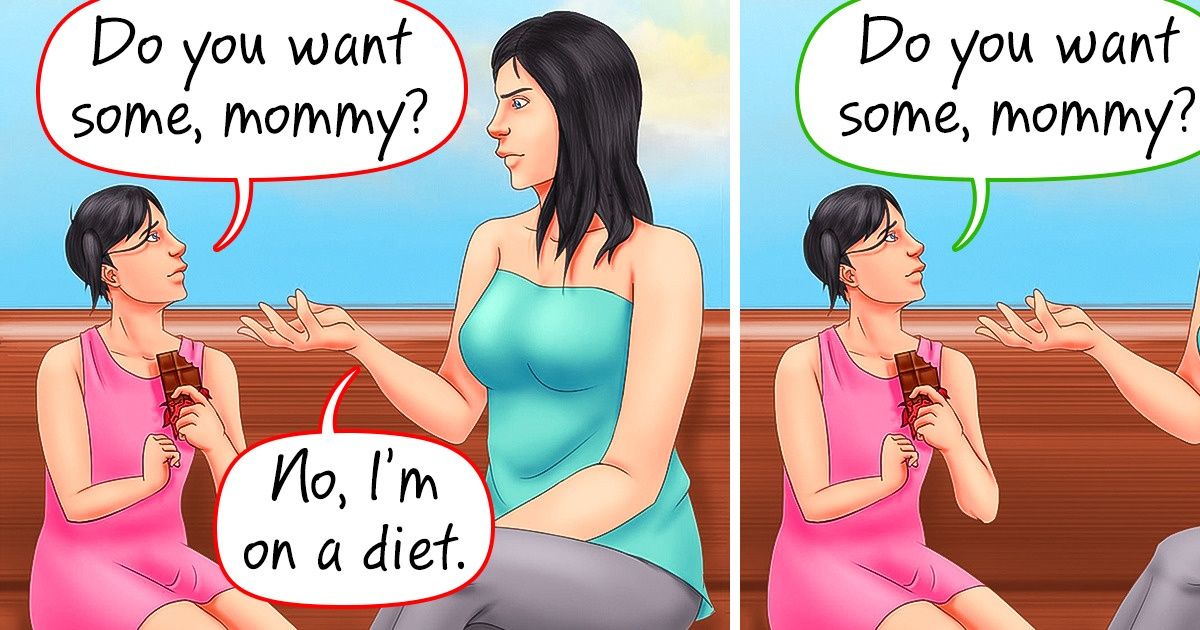
According to research, 3 out of every 4 children are not satisfied with their figure and 54% of girls reported that images on social media make them worry in relation to their own bodies. As a parent, just like teaching your child how to tie their shoelaces or dress themselves, you can teach them how to have a positive body image.
We at Bright Side wanted to share some helpful tips for you to use, so your child can grow up with a healthy mindset about their own body. Some of these tips are eye-opening for us — adults — too.
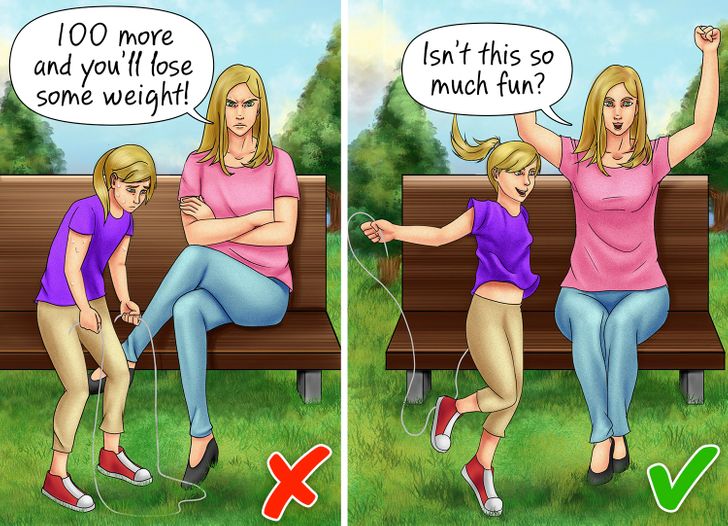
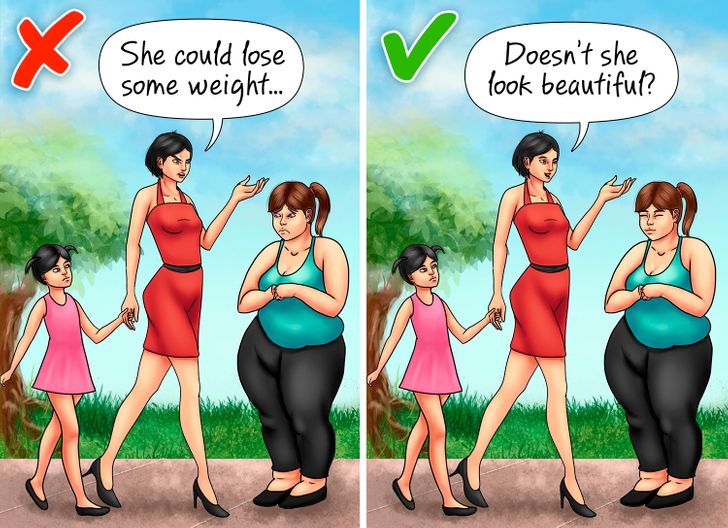
When talking about other people, try not to judge their appearance in front of your child. Instead of paying attention to people’s appearance and their size, try to focus on their qualities — whether they are kind or friendly, or their good manners. Your child will follow your example and see the good in people.

Research shows “that after 15 minutes of looking at a fashion magazine, the mood shifts from curiosity and enthusiasm to comparing yourself and putting yourself down.” Instead of having magazines everywhere in the house, aim to have picture storybooks, fairytales, folktales, and fables.
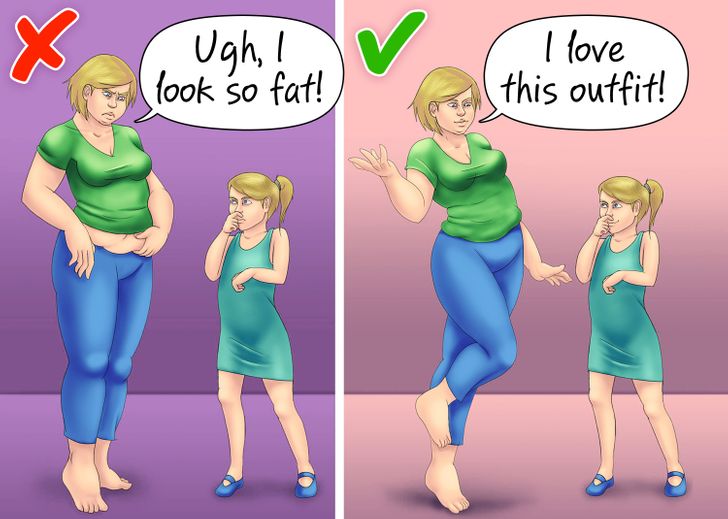
If you complain every time you put your jeans or dress on — making comments like, “This makes me look fat” or “I shouldn’t have eaten that cupcake last night because now my pants don’t fit,” you’re not doing your child any favors. Instead, show your child that you are comfortable in your own body and he/she will follow.
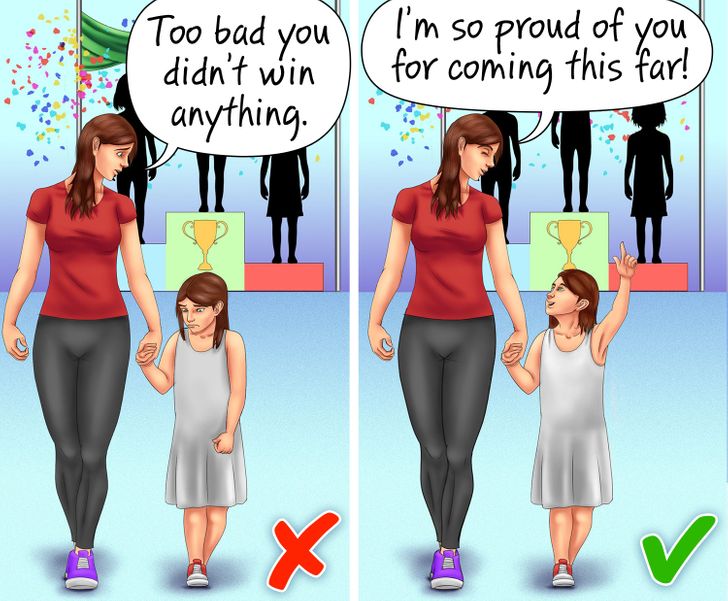
Dr. Rooney advises parents to focus less on the outcome and instead, shift it toward the development of new skills. For example, if your child started playing a sport, praise them for learning the skill. If they fail, show them that failure is not always a bad thing, that it’s an important part of life, and that it improves resilience.
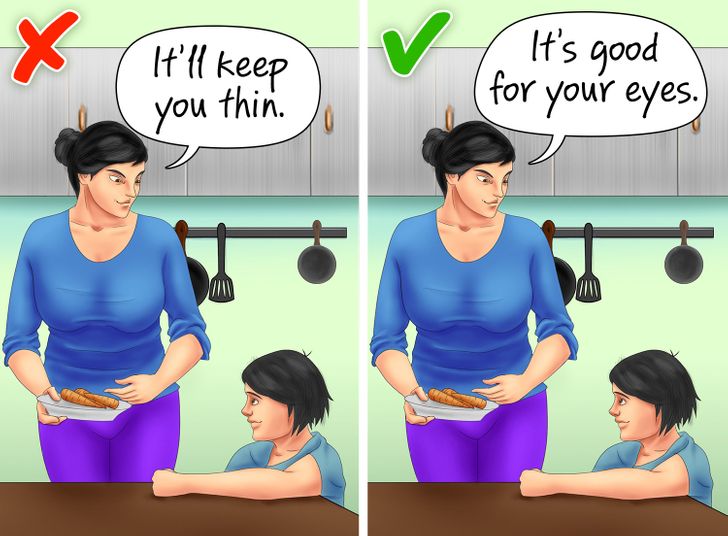
Let your child have a say about the food they consume. If you are shopping together, give them a chance to choose what they want from the aisles. This is the perfect time to educate your child on good food choices. Talk about why having a balanced diet is important, or about which vitamins and minerals are a must for a healthy body and mind.
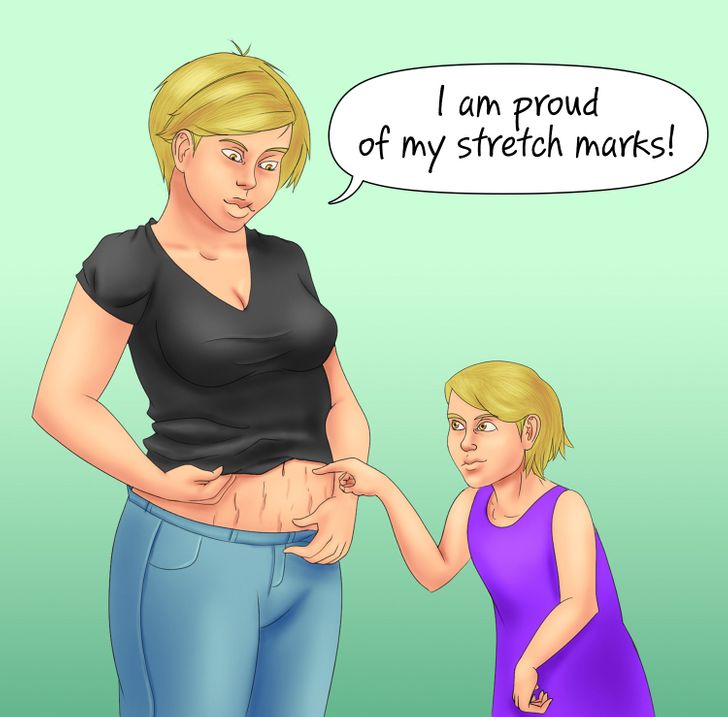
If your 7-year-old daughter complains that her belly is too big, don’t ignore it. Use this as a means to start a discussion — ask her why she thinks her belly is too big. Tell her that real, healthy bodies look totally different than what we see portrayed in the media and magazines.
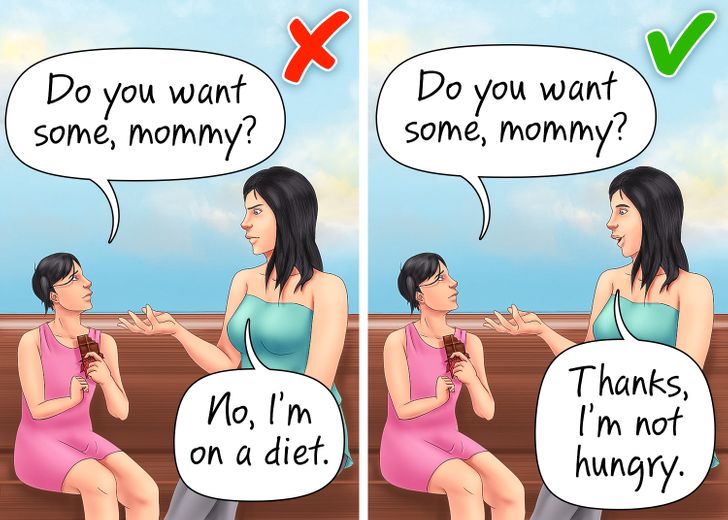
Don’t use food as a bribe or reward — this will result in your child eating for different reasons than pure hunger.
Don’t use food as comfort — in time, this will lead to emotional eating and this can affect health, weight, and overall well-being.

Take a look at your child’s toys — do the action figures have unrealistic muscles? Or do the dolls in your daughter’s collection have unrealistic body proportions? Try to remove these toys or, better yet, replace them with board games or puzzles which train your child’s brain and teach them problem-solving strategies.
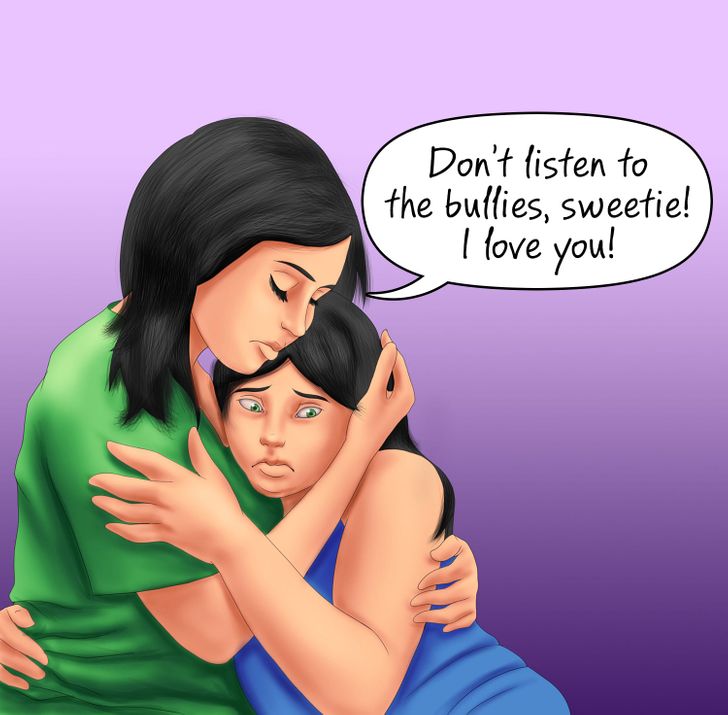
Your child needs to know that no matter what changes they go through, how they dress, or how they perform at something, you will love them just the same. Even if kids value their peers’ opinions more than their parents, they need to be assured that their parents treasure them and value them for who they are.
Do you think you have a healthy body image? What do you wish your parents would have done differently?











